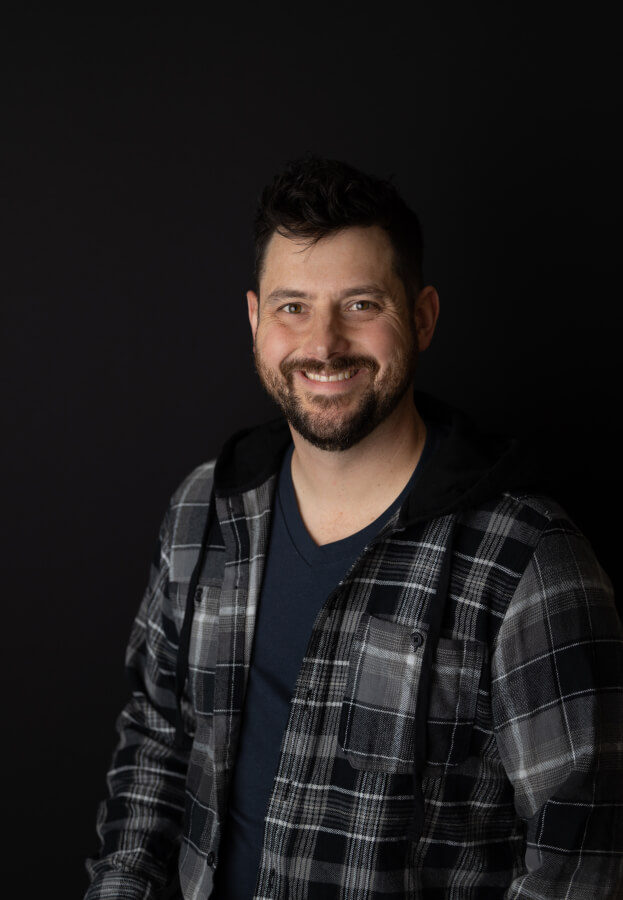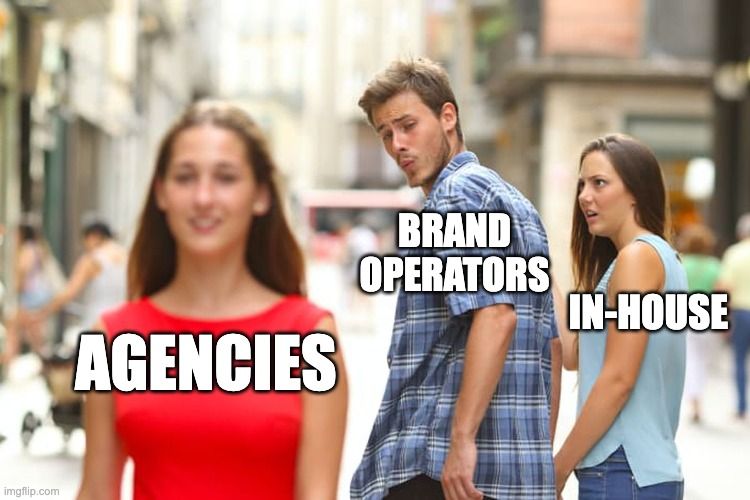.jpg)
Guest Post: Boris Beceric is a PPC consultant & coach and has been working in Digital Marketing since 2010. After working for agencies and in-house, he has been self-employed since 2020. When he is not thinking about PPC or working on accounts, he keeps busy making memes, lifting weights and playing guitar. Recently, he even released a song about Google's cushion shaking, but you can listen to it without being a Google Ads nerd. Boris resides in Konstanz, Germany with his wife and 2 daughters where they spend most of their time exploring nature or just chilling in the garden.
Connect with Boris on LinkedIn.
Connect with Boris on Twitter / X.
Editorial comments by Kirk Williams (ZATO Owner): Boris Beceric is a PPC dude worth following. A few months ago, Boris did an anonymous interview with a Google Ads Teleperformance (3rd Party contractor) rep that was so good, I asked him if we could publish his interviews on the ZATO website. In the efforts of transparency, I also asked for specific details about his conversations so I could verify (as much as possible) that this interview took place and was legitimate. Hey, Boris seems like a great dude, but I wanted to ensure it was legitimate before sharing on the ZATO site. It is indeed, and I think you will be intrigued to learn more about what it's like to work as a Google Ads 3rd Party Agency Rep.
As part of this discussion, it's important to remember that there are multiple levels, and kinds, of Google support reps (some through third party companies such as Revana, TTEC, and Teleperformance, and some directly as employees of Google). For a little more information on this, specifically from a Google rep, check out our podcast interview with Ben Kruger here: S2, E1: Why Are Google Reps The Way They Are? - with Ben Kruger, Google - PPC Ponderings Podcast
AMA With an Anonymous Ex-Teleperformance (3rd Party Google Ads) Support Rep*
Q: How long did you work for TP?
A: 1 year / summer 21 - summer 22
Q: What made you apply there?
A: I got an email, think they found me on LinkedIn. I am *redacted* and since they struggle to find *redacted* speakers, I believe they have a very active outreach based recruiting strategy.
Q: How many accounts did you have in your portfolio?
A: First 4 months I had around 300, after my “promotion” without salary i had around 100.
Q: Could you make it work with your salary or was it rather tight with money?
A: I was doing just fine - lived alone in a 3 bedroom apartment near *redacted*, had a premium gym subscription, ate takeaway or at restaurants most nights, clubbing every weekend. No savings though, but that wasn’t a priority, if I wanted to save, I believe I could’ve saved 300-500€ a month if I lived on a tight budget.
Q: How was the team morale during your time there?
A: Mostly good - some people would complain about salary or working hours, but honestly since it was COVID-19 times and we we’re all WFA most people chilled and worked 2-4 effective hours a day. Team spirit was better on some teams than others.
Q: Could you describe the structure of your team and the quality of your coworkers?
A: I was on 3 different teams due to restructuring basically every Q. *redacted*, *redacted* and just *redacted* . We would have a team lead and then be 5-15 reps on each team. People were typically 20-25 when they started out, and completely unskilled in digital marketing, like myself. Some had a business degree or relevant experience in marketing, but some few also came with no sense of what was happening. After a few months, some would show their potential by self learning and exploring, and others would struggle due to lack of interest and understanding.
Q: How often did you meet your KPIs?
A: Every quarter - more than half of the team did.
Q: What were the targets when you worked at TP? Did you have specific products to push?
A: Get a “full implementation” on 30% of your clients and hit certain blended revenue targets. We had to push mostly new products and products that utilized machine learning and AI. So automated bid strats, AAR, recommendations, budget increase (ofc) was the most frequent ones to use. Back in the day I know they could get points for getting people to switch from text ads to RSA’s for example.
Q: Were the targets realistic or rather impossible to hit?
A: Impossible to hit “naturally”, I just stalked change history and set up alerts to “steal” implementations when clients implemented certain features themselves.
Q: How did you cope with all the rejection you must have encountered when mailing and calling people about their accounts?
A: Honestly it wasn’t too bad. Big agencies and very skilled inhouse teams would of course dismiss our invitations etc, but small advertisers or agencies would often book a meeting if pushed hard enough.
Q: What made you leave TP and move on?
A: I felt like I had learnt what I wanted to and had a year to relax and enjoy spain, so I wanted to move back to *redacted* and do a masters degree.
Q: In hindsight, was TP a good place to work at?
A: TP was good. For a big company tied to only one client (Google for my employment), they did a lot to make me feel comfortable in the city. The negative point is that TP cares more about your social life and your life outside of work than they do about your product skills. As long as you can sell sell sell, they don’t care if you know nothing about what you’re doing and if it’s hurting the advertisers. But as an employer, they’re great. Gives you free gym, lot’s of cool social activities, awesome incentives (macbooks, drones, iphones for top performers, 20-100€ universal gift cards for medium performers). You get Christmas and birthday gifts, help with banking, residency, taxes etc. Personally I believe Google is the one driving the shitshow inside TP, TP try their best but they have to abide Google in the end. And for Google, having an external partner doing the shitshow and spam calls is better for the brand.
These are questions from the community - I asked to keep it civil 😀
Q: How do they justify that small business owners are only ”consulted“ based on reaching internal sales targets? I find this unethical.
A: They don’t justify it - they just don’t care. The people who actually tell you to turn on AAR on the phone either knows it’s a shit move for you but care more about their bonus than your marketing budget or they are so unskilled that they honestly don’t know. The only information we have is the official slides from Google, and they usually state that AAR etc. is good and show 1 or 2 examples where advertisers gained a profit from it that we then use to “sell” to our portfolio.
Q: Is it company policy to not tell the whole truth about the impact turning on AAR can have on accounts? Or is this something TP reps do themselves to get their incentive bonus?
In case it's the last one, how does TP act on this to make sure advertisers get the right information?
A: A mix i guess, but definitely not an official policy. TP and Google only train employees in the benefits and success cases of AAR - but as you talk to more advertisers, most reps discover the truth and that AAR is almost never helpful. Some choose to just hit their targets with other product implementations because they feel bad pushing a bad product on unknowing advertisers, and some just don’t care and keep trying to sell it.
Q: Ask them is the advice to make more $ for google or genuinely make clients campaigns be more effective
A: To make Google’s AI stronger with more data. Money is second to data in the priority list. In TP, some team leads will encourage employees to select 5-10 “key clients” where they actually work towards better results from campaigns, but that is more on a volunteer basis and only for people who know how to sell the shit out of Google’s pushed features to other clients so they can reach their targets easily.
Q: Why does Google call me two to three times most days? I never answer and they keep calling!
A: see meme below (provided by our anonymous ex TP rep) 😂
.jpeg)
I marked some parts of the answers as *redacted* because it is information that could lead to this person's identity being revealed. We don't want that. Rest assured, I know who that person is and have verified they have indeed worked with Teleperformance.
*This conversation first published on LinkedIN and repurposed here with permission.
.jpg)
Guest Post: Boris Beceric is a PPC consultant & coach and has been working in Digital Marketing since 2010. After working for agencies and in-house, he has been self-employed since 2020. When he is not thinking about PPC or working on accounts, he keeps busy making memes, lifting weights and playing guitar. Recently, he even released a song about Google's cushion shaking, but you can listen to it without being a Google Ads nerd. Boris resides in Konstanz, Germany with his wife and 2 daughters where they spend most of their time exploring nature or just chilling in the garden.
Connect with Boris on LinkedIn.
Connect with Boris on Twitter / X.

.jpg)
.webp)


.jpeg)

.jpg)




